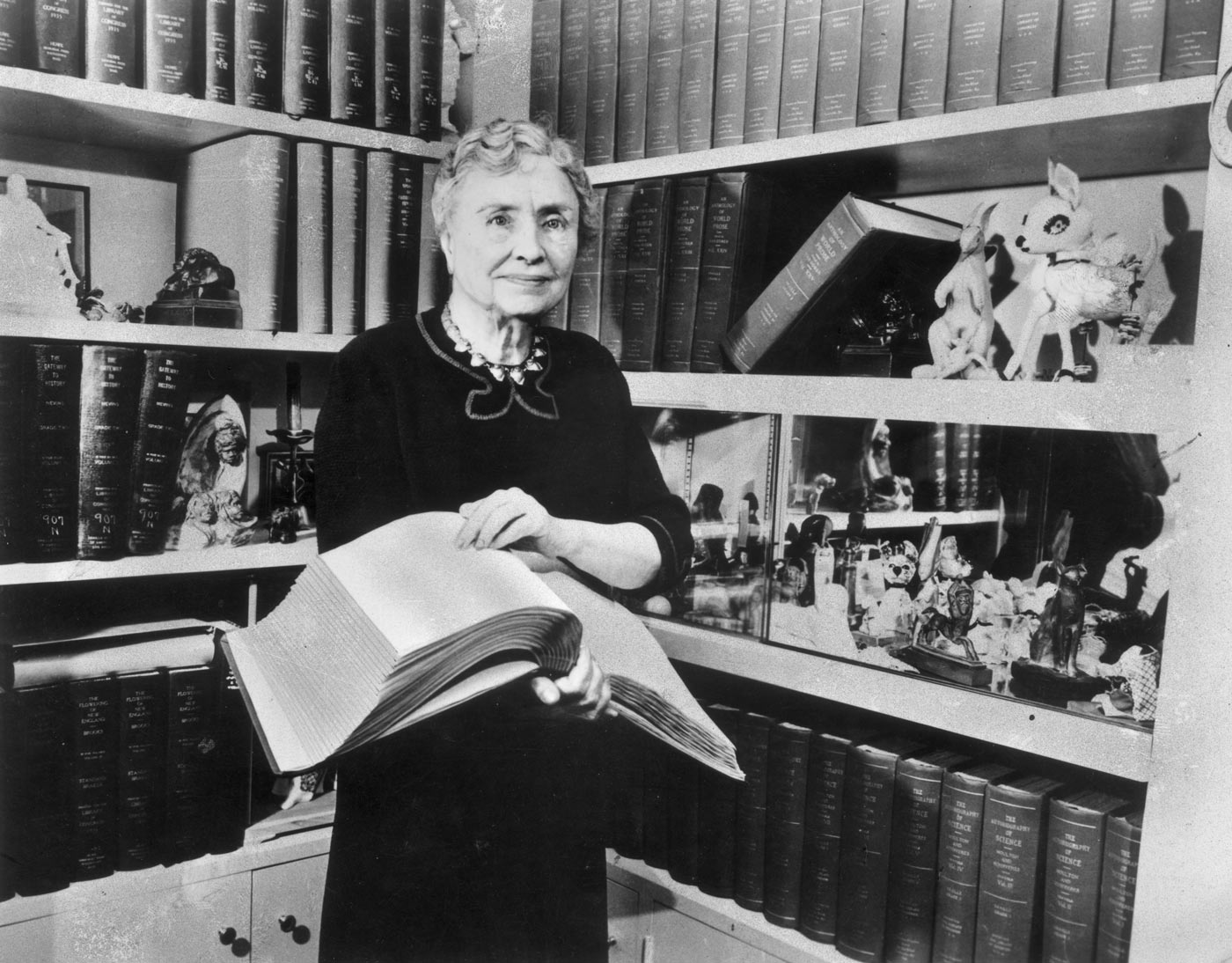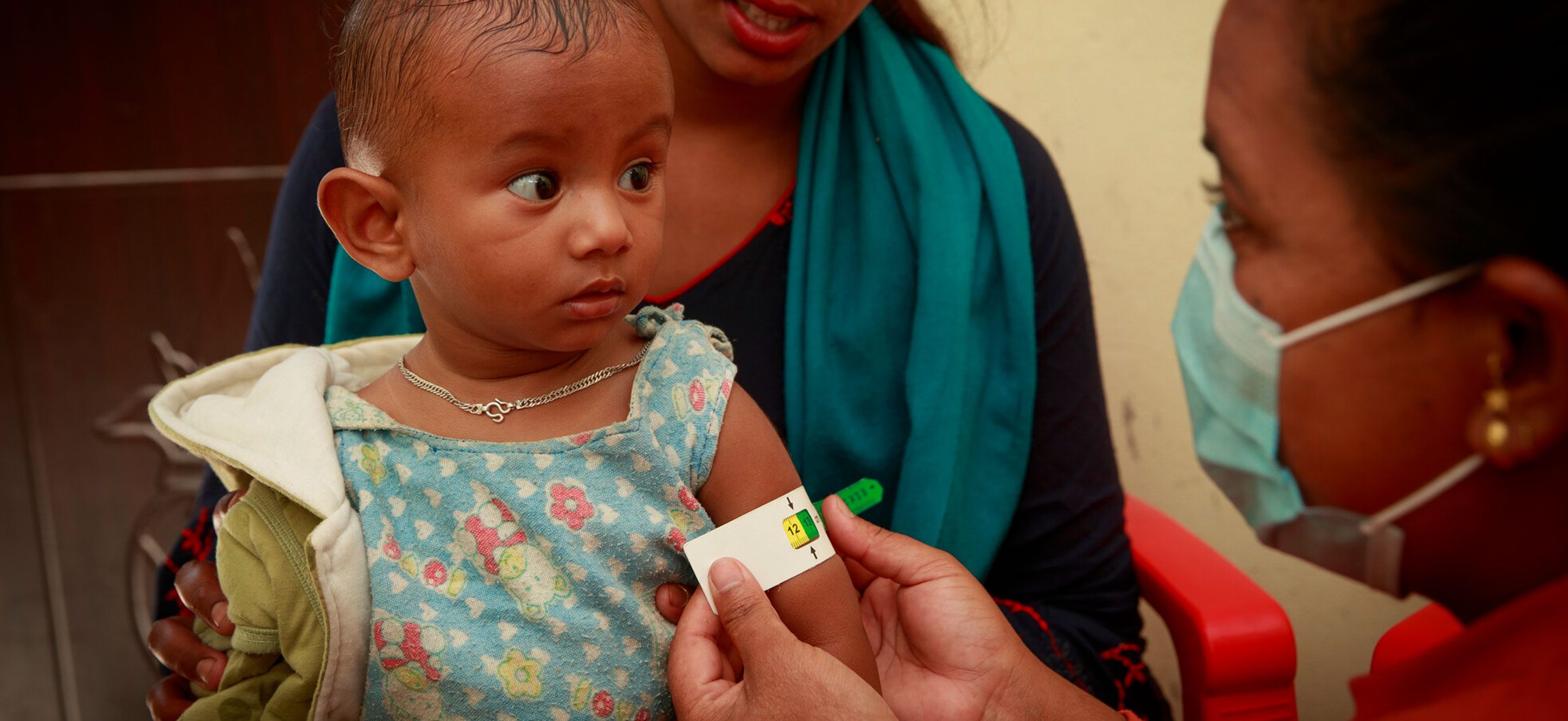
As hunger mounts, children are at greatest risk
The combined effects of the COVID-19 pandemic, climate crises, and war in Ukraine have delivered a terrible blow to families already struggling with decades of local conflicts, terrorism, and broken food and healthcare systems. Widespread food and fuel shortages, along with inflation rates rising into the double digits, make it nearly impossible for families to survive.
And it is children who have the most to lose. In places like Nepal, nearly half of children under the age of five are malnourished.
A cycle of malnutrition
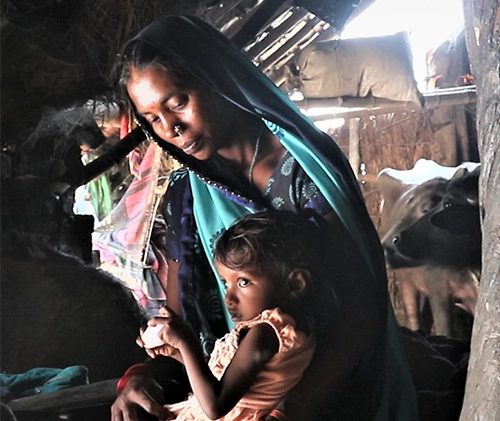
In the nation’s south-central Kapilvastu district, Bifana Rajbhar is living with the repercussions of these conflicts. Like many mothers, she struggles to nourish her young family. With a cow as her only asset, Bifana sells three liters of milk daily, earning the equivalent of less than $2 a day. With food costs rising fast, her income is not enough to feed herself, let alone her five children. Sleeping with an empty stomach is unpleasant, but not the worst of her concerns. “I feel the most helpless when my children tell me they are hungry,” Bifana admits.
I feel the most helpless when my children tell me they are hungry.
Bifana Rajbhar
When Bifana’s youngest daughter Nirma, then 23-months-old was diagnosed with severe malnutrition in 2021, Helen Keller provided urgent treatment and counseled Bifana about how to best keep Nirma healthy. Nirma’s health quickly improved, but the results were temporary.
During a recent follow-up screening, Nirma was again found to be malnourished. She is recovering for the second time, with support from Helen Keller Intl, but she cannot relive such a pattern without experiencing lasting harm. Even if children who recover from malnutrition, there can be lasting effects. Their brain and physical development can be stunted, setting them up for a lifetime of challenges.
Struggling to keep up with rising cost of daily essentials
Mina Rai, a mother from Nepal’s Taplejung District, finds it ever more challenging to ensure her two-year-old son Arnold receives the right nutrition. The family has difficulty making ends meet after her husband, a daily-wage earner and the breadwinner of the family, struggled to find work during the COVID-19 pandemic.
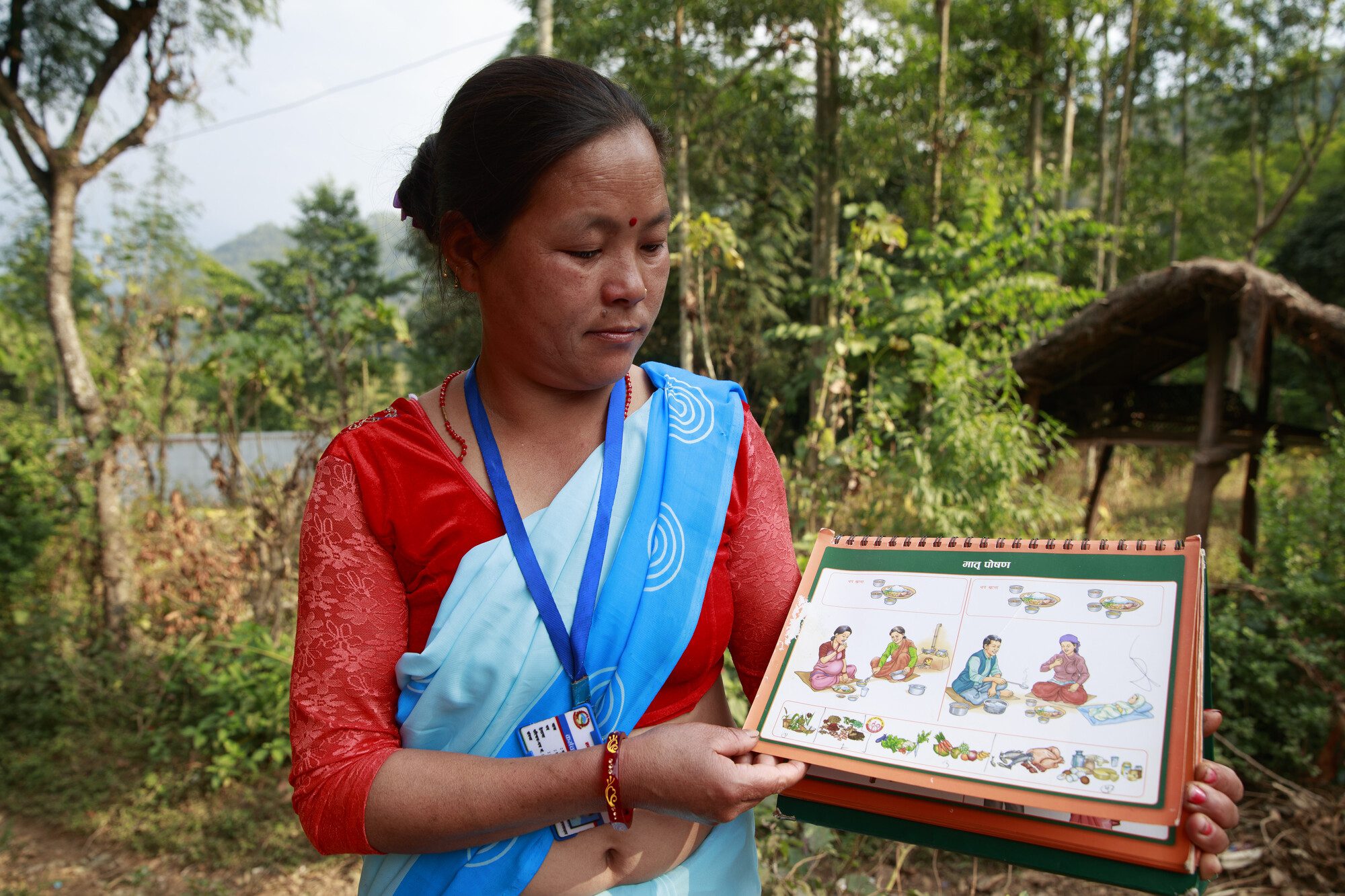
After working with Helen Keller community healthcare workers, Mina is well aware of how important a nutrient-dense diet is to ensure a healthy future for her child, especially during his first 1,000 days of life. Mina used to religiously give her son a liter of milk a day, but these days, she’s been forced to cut back how much milk her growing infant consumes. “I can only afford to buy half a liter of milk every other day,” she says. Mina worries that cutting down on essential nutrient-dense foods could impact her child’s health.
When the family farm is no longer a solution
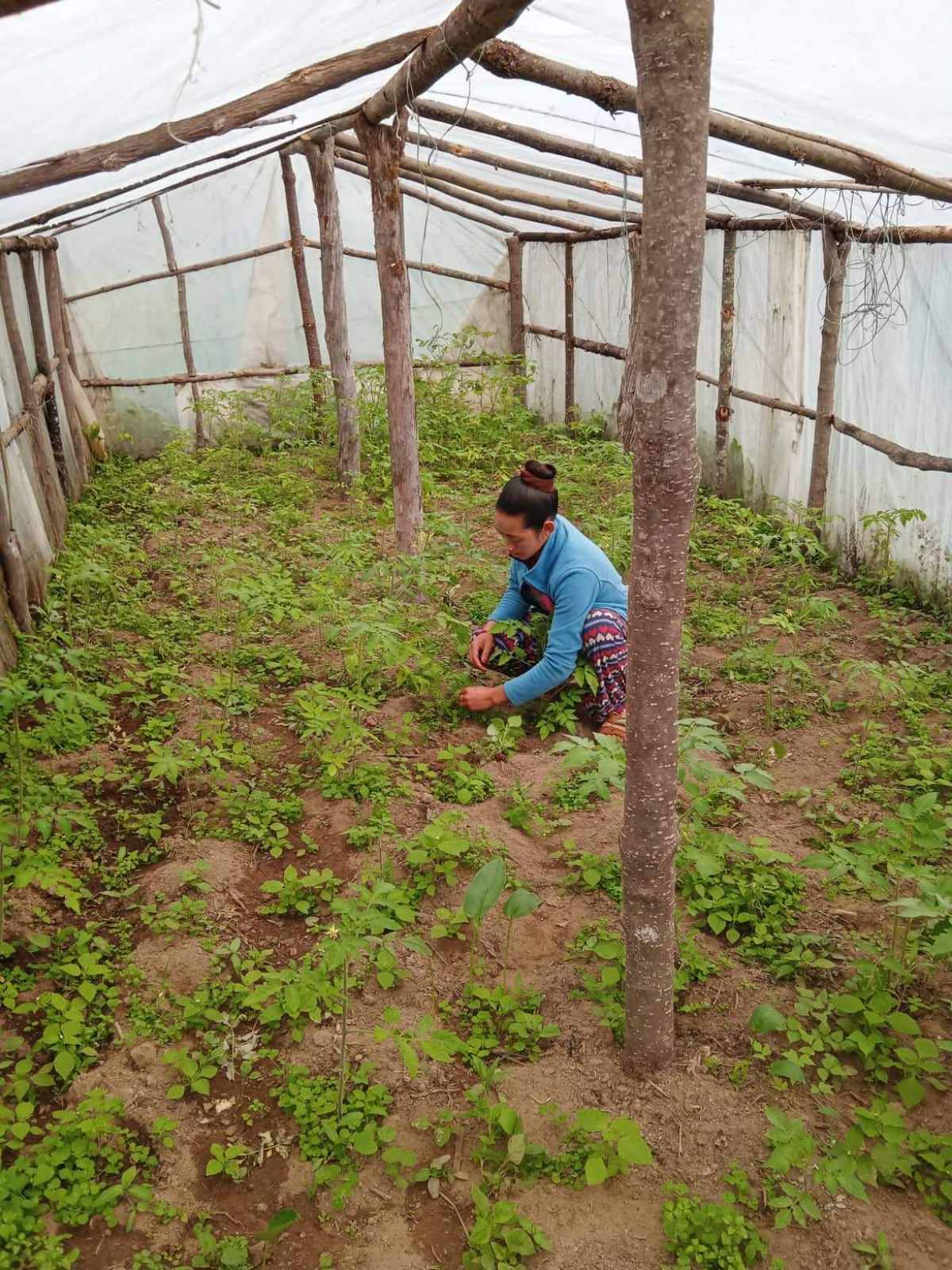
In Nepal’s Solukhumbu District, Kavita BK constantly worries about what her family of four will eat. A farmer from a rural mountainous village, she belongs to an excluded caste group, the Dalits. For generations, Dalits have been excluded from the mainstream and have been relegated to the fringes of society.
As a model farmer in her village, Kavita is enhancing her family farm’s capacity and demonstrating best practices with Helen Keller’s guidance. In turn, Kavita and other farmers advocate for good agricultural practices in their communities. Things were going well, until the pandemic and war in Ukrainian sparked obstructive changes in her life.
How will I feed my children?
Kavita
Sanctions have disrupted the sale of fertilizer from Russia, causing rippling across the globe. Kavita watched as fertilizer shortages erupted and the cost of seeds doubled in a matter of days. With no seeds or fertilizer, farmers like Kavita are likely to miss a harvest. This means having to buy food during a time when inflation is spiraling out of control. “How will I feed my children?” Kavita questions.
Supporting families when the need is greatest
Unfortunately, stories like Nirma’s, Mina’s, and Kavita’s aren’t unique. With conflict and soaring prices daily essentials, life is getting arduous. Today, one in five Nepali families does not have enough to eat.
Ongoing crises demand action, and we are responding.
Helen Keller works hand-in-hand with communities in Nepal and around the world to ensure children and families receive the right support at the right time. Thanks to our generous donor community and trusted partnerships, we have been a constant in the lives of thousands of families. This allows us to support families now, in times of urgent need, and strengthening healthcare and food systems to help families weather long-term challenges.
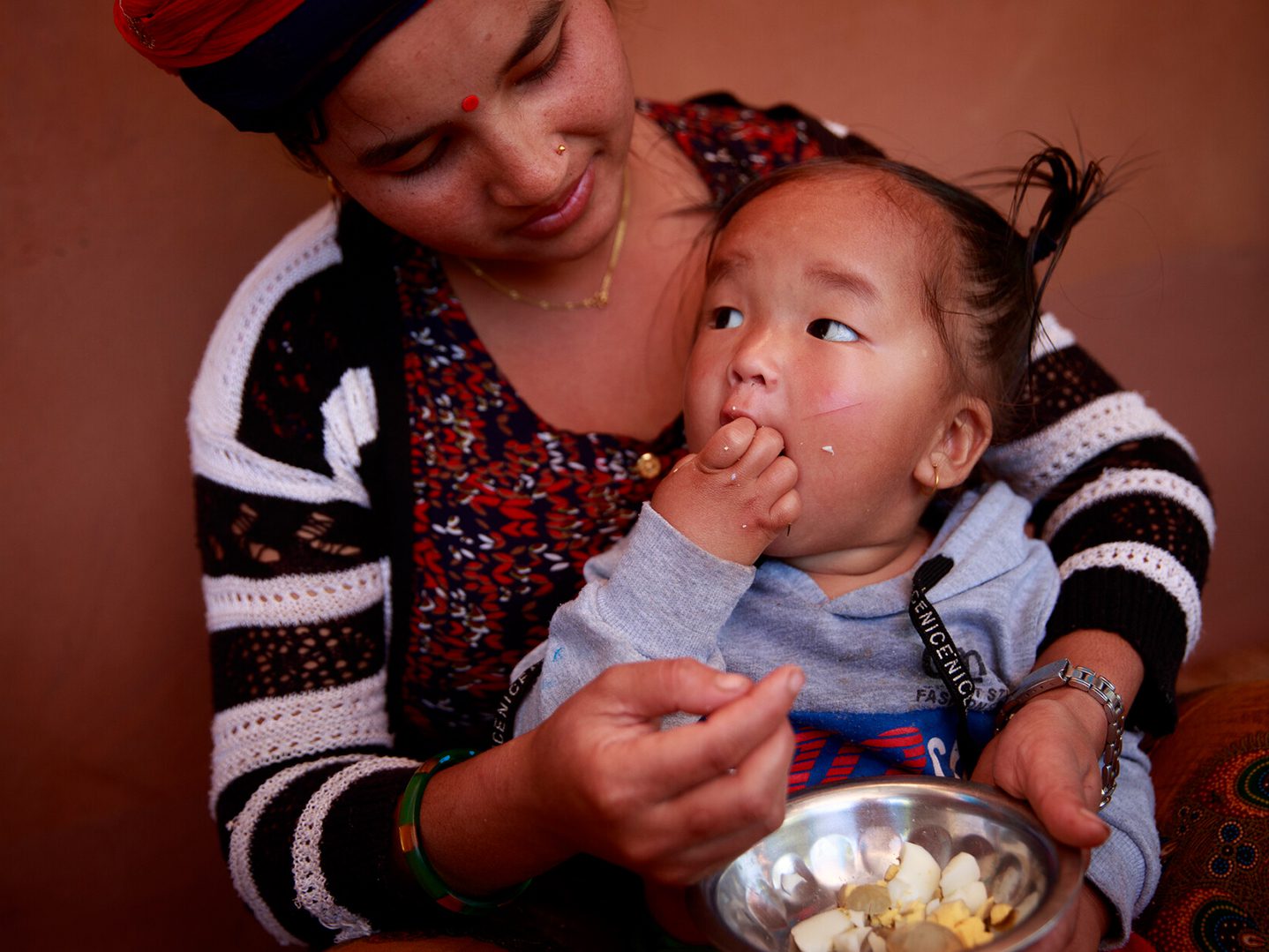
Your urgent action can ensure families receive the right support at the right time.
